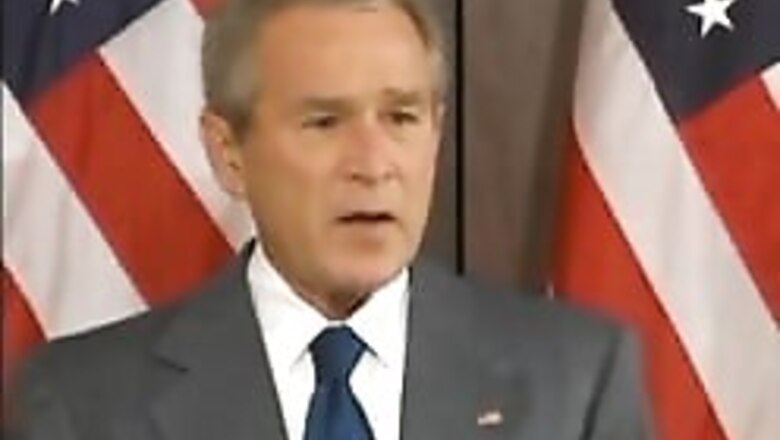
views
Washington: US Secretary of State Condoleezza Rice on Tuesday met influential lawmaker Howard Berman, a leading critic of the Indo-US nuclear deal, and is believed to have discussed with him the modalities of winning Congressional approval for the agreement.
Berman, who is Chairman of the powerful House Foreign Affairs Committee, had warned the US Congress to not rush through the 123 agreement with India until Bush Administration proved that it did not cut any "side deals" at the NSG meeting to get the India-specific waiver.
Berman, a well-known opponent of the atomic agreement, said earlier this week he would not consider any "expedited" timetable for considering the Indo-US agreement until the government provides him more information about negotiations held at the NSG in Vienna.
Rice's visit to Capitol Hill to meet Berman is an indication that the Bush administration is going to leave no stone unturned to get the landmark nuclear deal through this session of the Congress.
Berman's office refused to divulge details of the meeting, saying "it was a private meeting", but it is believed that Rice discussed with Berman the modalities of winning approval for the nuclear deal in the 110th Congress, technically due to end on September 26 this year.
The State Department said the administration is going to make a "full court press" with Congress and that the Secretary of State had spoken with a number of lawmakers including Chairman Berman, the Chair of the Senate Foreign Relations Committee and currently Democratic Vice Presidential nominee Senator Joseph Biden among others.
The US government is making an all out effort to get the 123 agreement ratified by the Congress this session, with Secretary of State Condoleezza Rice instructing staffers to ready the "package" to be submitted before the House in a day or two, state department spokesperson Sean McCormack said.
"We think that there is a possibility of getting this passed this year and we are going to do everything we possibly can," said McCormack, adding, "whether it does or not, it's not going to be for lack of effort".
Berman, who had voted for the Hyde Act of 2006 has continued to express concerns on the conformity of the 123 Agreement with the Hyde Act and has said that the onus is on the administration to show that what Congress is being asked to approve conforms with American law.
With time running out, the Bush administration has put on fast track the process for approval of the nuclear deal by the US Congress before the end of the incumbent President's term.
Current law requires Congress to consider the nuclear deal package for 30 continuous legislative days before voting on it.
If no lame duck session is held after the November 4 US Presidential elections, Congress would need to waive the 30-day requirement in order to be able to vote on the deal before the last day of the congressional session, now set for September 26.



















Comments
0 comment